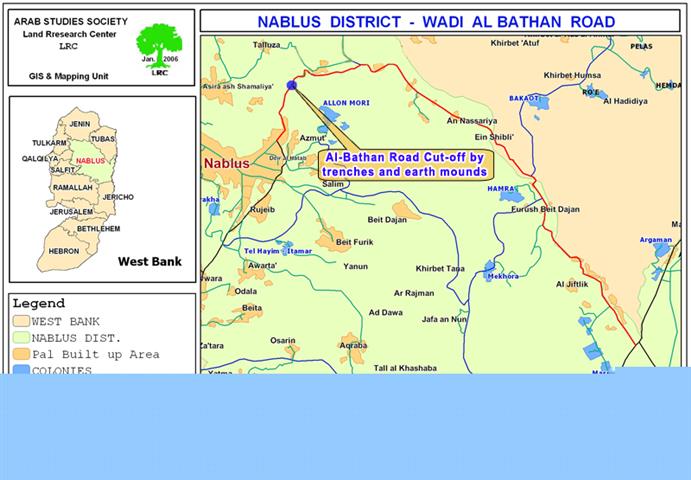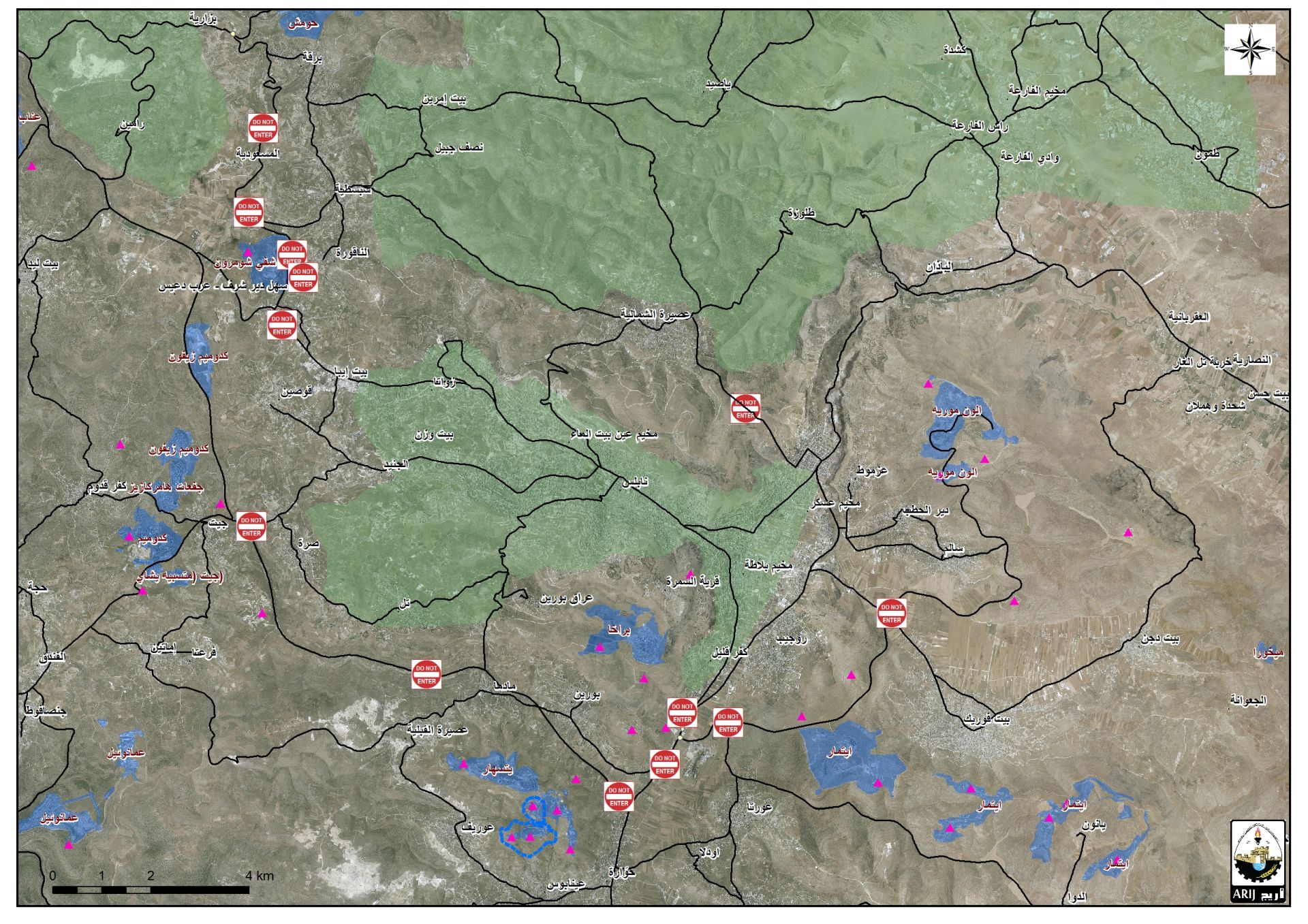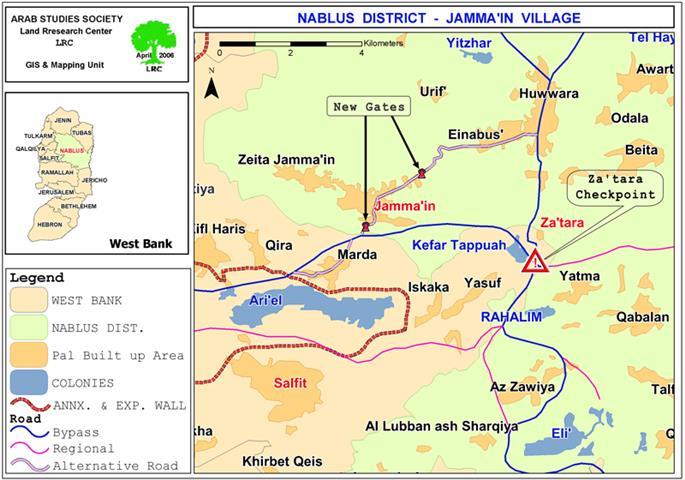On April 1st, 2006, the Israeli army's bulldozers cut off the only road linking between Nablus and the northern districts of Jenin and Tubas with earth and rock mounds as a means of collective punishment against the Palestinian population of the region. The Wadi Al Bathan road, also, connects Nablus with Al Jiftlik area in the Jordan valley rift where the West Bank food basket is located. This road was closed as part of the ongoing Israeli military onslaught which encompasses military break ins, killing, injury and detention of people, as well as confiscation of lands, building of the Wall, expansion of the colonies and destruction of infrastructure. See Map 1
The Israeli army bulldozers made two earth mound barriers separated by a one km long walk able passage way. This means that to cross from one side to the other one has to get out of the car and walk the distance of one km on foot before getting into the other car. He/she has to climb or zigzag the two earth mounds on the way.

(Photo 2: people walking between the two earth mounds)
Constant closure
Since the beginning of the current Intifada, Nablus city has been separated from the rest of the West Bank proper by Israeli military barricades, checkpoints and road blocks.
Wadi Al Bathan road was one of the roads closed ever since the beginning of the current Intifada six years ago. However, it was opened for only two months -October and November, 2005 � to be re-closed again at the beginning of December, 2005 by a permanent military checkpoint.
Road closure impact on Palestinians
1. Separating the city of Nablus from the rest of other cities in the region such as Tubas and Jenin in addition to Jordan valley region;
2. Inaccessibility to work places, schools, universities and health centers in Nablus city;
3. Paralyzing economic and social life in the area;
4. Hindering the provision of agricultural products from the Jordan valley to Nablus city;
5. Adding more pressure on the handicapped, children and elderly people;
6. Destroying the tourist season in Wadi Al Bathan which contains many tourist places and recreational centers that form main attractions for internal tourism;
7. Adding more financial burdens on passengers as they are requested to pay two tariffs instead of one;
8. Increasing the feeling of depression and frustration amongst Palestinians.


Photos 3 & 4: Taxi drivers waiting for passenger to arrive from the other side of end )
Prepared by
The Land Research Center
LRC















